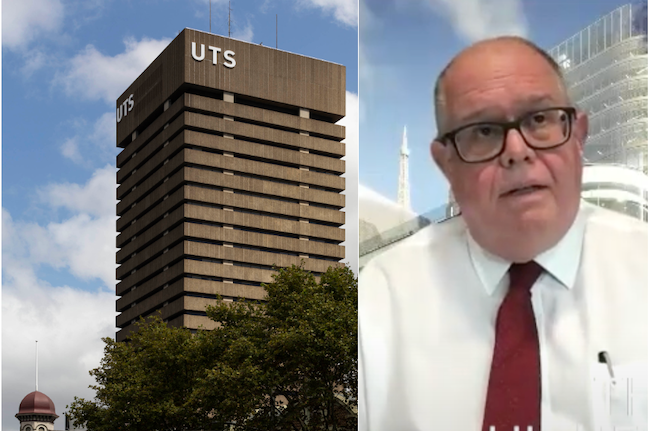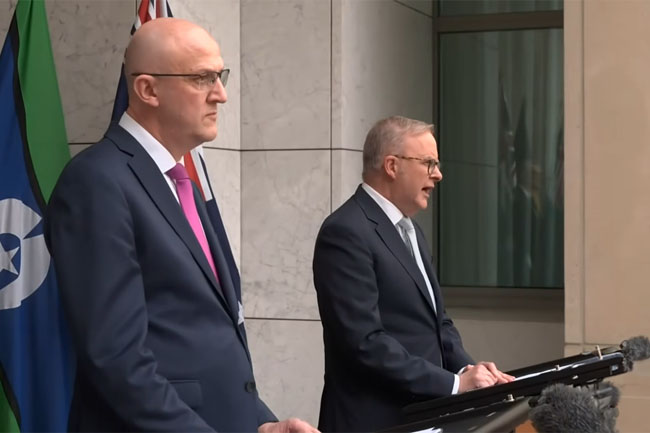The mental health of Julian Assange has reached a low point as the imprisoned journalist faces extradition to the United States, writes Dr Binoy Kampmark.
FOR THOSE WHO HAVE had some inkling of the gravity of the Julian Assange extradition trial (if trial is the proper term), a prominent prosecution tactic has emerged. We know, for instance, that the team of lawyers representing the United States is keen to narrow the implications of the superseding indictment which accuses Assange of 17 counts of violating the U.S. Espionage Act and one count of conspiracy to commit a computer crime.
They believe that Assange is no publisher, but a profiteer in stolen goods or national defence information. They also believe that Assange is essentially a fantasist, exaggerating his mental health in order to satisfy the unsympathetic Judge Vanessa Baraitser that he faces danger in being tried and convicted in the United States.
Section 91 of the United Kingdom’s 2003 Extradition Act makes it clear that the judge in the extradition hearing must order the discharge of a person or adjourn the extradition hearing if ‘the physical or mental condition of the person is such that it would be unjust or oppressive to extradite him’. This can be read alongside the application of the European Convention of Human Rights, which stipulates under Article 3 that: ‘No one shall be subjected to torture or to inhuman or degrading treatment or punishment.’
The Assange defence team can draw upon ample precedent. British computer scientist Lauri Love, who was diagnosed with Asperger’s syndrome, was arrested in 2015 in the UK at the request of the United States for allegedly hacking various government entities, including the U.S. Federal Reserve, the Environmental Protection Agency, NASA and the U.S. Army. On 16 September 2016, Love lost his case and received the dreaded news that then Secretary of State Amber Rudd had approved his extradition.
A successful appeal was made to the UK High Court. It was accepted by the justices that the U.S. was an inappropriate forum to try Love and that prison conditions awaiting him ‘would be oppressive by reason of his physical and mental condition’.
The High Court also accepted that:
‘...the fact of extradition would bring on severe depression, and that Mr Love would probably be determined to commit suicide, here or in America’.
Being put on suicide watch would hardly have been adequate – it was not a ‘form of treatment; there was no evidence that treatment would or could be made available on suicide watch for the very conditions which suicide watch itself exacerbates’.
In 2012, Gary McKinnon, also facing extradition efforts by the U.S. Government for hacking charges, succeeded in making the case that he would be at high risk of suicide in U.S. prison facilities, a point exacerbated by Asperger’s syndrome and depression.
The often cold figure of then Home Secretary Theresa May seemed warmed by McKinnon’s plight, concluding that:
“...extradition would give rise to such a high risk of him ending his life that a decision to extradite him would be incompatible with [his] human rights.”
Specific to Assange are various commentaries and evaluations that suggest a decline in mental health and the lingering effects of psychological torture. Nils Melzer, the United Nations Special Rapporteur on Torture, is of the view that the collective effort of several states – Ecuador, the United Kingdom, the United States and Sweden – has created conditions of “psychological torture”, part of a calculated effort of archaic cruelty.
As he remarked to Republik in January this year, reflecting on the Assange case:
“A murderous system is being created before our very eyes.”
In May 2019, he claimed that the WikiLeaks founder had been subjected to:
“...a relentless and unrestrained campaign of public mobbing, intimidation and defamation… not only in the United States, but also in the United Kingdom, Sweden, and more recently, Ecuador.”
In company with two medical experts experienced in examining victims of torture and ill-treatment, Melzer paid a visit to Assange in May 2019, leading him to conclude that his “health has been seriously affected by the extreme hostile and arbitrary environment he has been exposed to for many years”. Assange, “in addition to physical ailments… showed all symptoms typical for prolonged exposure to psychological torture, including extreme stress, chronic anxiety and intense psychological trauma”.
In November 2019, Melzer reiterated his concerns given a distinct lack of interest on the part of British authorities to make improvements:
“Despite the medical urgency of my [May] appeal and the seriousness of the alleged violations, the UK has not undertaken any measures of investigation, prevention and redress required under international law.”
In case anyone thought Melzer was being overly committed and even histrionic in pursuing his case, the findings of such medical concerns as Doctors for Assange, an initial collective of 60 medical doctors, growing to 117 spanning 18 countries, are also disturbingly persuasive. The Assange case, they argued in February in The Lancet, ‘highlights several concerning aspects that warrant the medical profession’s close attention and concerted action’.
In June, the group further noted that:
‘Isolation and under-stimulation are key psychological torture tactics, capable of inducing severe despair, disorientation, destabilisation, and disintegration of crucial mental functions.’
The psychological torture of a publisher and journalist in a climate already hostile to journalism ‘sets a precedent of international concern’.
Witnesses for the defence have also put the case strongly.
Dr Michael Kopelman, Emeritus Professor of Neuropsychiatry at the Institute of Psychiatry at King’s College London, took the stand at the Old Bailey on 22 September to portray a man sleep deprived, suffering:
“...loss of weight, a sense of pre-occupation and helplessness as a result of threats to his life, the concealment of a razor blade as a means to self-harm and obsessive ruminations of ways of killing himself.”
In Kopelman’s testimony, Assange is reported to have experienced “auditory hallucinations” featuring “derogatory and persecutory” voices: “you are dust, you are dead, we are coming to get you.”
In submissions to the court, Kopelman was:
“...as certain as a psychiatrist ever can be that, in the event of imminent extradition, Mr Assange would indeed find a way to commit suicide.”
The following day, we had Dr Quinton Deeley, a National Health Service consultant psychiatrist, shoring up the defence on a convincing diagnosis: that Assange was, in fact, on the high end of the autism spectrum and should be treated accordingly.
Deeley conducted two Autism Diagnostic Schedule (ADOS) tests on Assange when in Belmarsh prison, including six hours of phone interviews in July 2020. The clinician observed “rigidity of thoughts” and “obsessive rumination”, common traits in autism spectrum disorder. This caused him a “sense of horror”.
For the publisher, extradition and prison would be:
“...an unbearable ordeal, and I think his inability to bear that in the context of [an] acute worsening depression would confer a high risk of suicide.”
Assange saw his predicament as “unjust”, believing that an “example is being made out of him”.
On 24 September, the defence produced Dr Sondra Crosby of Boston University, whose experience on the physical and psychological effects of torture is unsettlingly impressive. She had visited Assange in the London Ecuadorean embassy in October 2017 after an American doctor (left unnamed) organised an “academic evaluation of the effects of living in the embassy”. She noted mental decline, sleep deprivation, nightmares, inability to concentrate. Assange spoke to her of “symptoms of depression, symptoms of post-traumatic disorder”.
Thoughts of suicide start being expressed to Crosby in 2018. The broadcasted suicide of the convicted Bosnian Croatian General Slobodan Praljak before the stunned judges of the International Criminal Tribunal for the former Yugoslavia left an unmistakable impression.
In her 23 February 2019 session with Assange at the Ecuadorean Embassy in London, Crosby was alarmed by Assange’s conspicuous deterioration both physically and psychologically:
“I was very concerned about a very advanced tooth infection that was causing him excruciating pain, requiring him to take narcotics.”
In such a state, she was worried how he might manage such a regime of treatment without harming himself.
Further visits to Assange at Belmarsh in October 2019 and January 2020 further developed the picture of despair. Crosby’s December 2019 report finds that Assange had “met all the criteria for major depression”; he was “essentially dead”, “tearful”, prone to pleas. He revealed how he had called the anonymous suicide hotline Samaritans.
She also found physical symptoms indicative of anxiety or cardiac arrest and the possibility of chronic respiratory infection. Assange, she concluded, was “at high risk of completing suicide if he were to be extradited”.
The prosecution tactics have been uninspiringly dreary: discrediting witnesses for lack of partiality; attacking expert credentials with disdain and suggesting that Assange is having everyone on. The chief lead on this is James Lewis QC, whose understanding of autism and mental illness, given his cross-examination, has proven to be rudimentary at best.
Let us consider a sampling of such tactics. Lewis’s attack on Kopelman was a show partly abysmal and comical. Kopelman, Lewis suggested, might be an expert in brain disease and its link with mental health, but why should he claim expertise on Assange’s health?
Kopelman reminded Lewis that he had previously called upon his services in a different case. It was “a bit rich” for the prosecutor to now be challenging his qualifications. The prosecution also suggested that Kopelman’s psychiatric resumé had somehow faded before his insistence on being an “advocate”. The indignant psychiatrist felt inclined to respond to that assertion with an “unparliamentary word”.
Lewis also pressed the prosecution point that Assange been “malingering” about his symptoms, exaggerations aided by his consumption of medical literature. His untrustworthy hallucinations had been “self-reported”.
Kopelman reminded Lewis of a cardinal lesson in his field: psychiatry tended to rely on self-reporting:
“I don’t believe he’s got delusions. He’s very worried about whether discussions are recorded.”
Given the “experiences in the embassy, that was rational anxiety”.
Both Kopelman and Deeley also faced a set of astonishing questions betraying the narrowest and most prejudiced of minds on the subject of autism. For Lewis, a person on the autism spectrum would surely be incapable of authoring texts, hosting media events and giving speeches.
Lewis felt he was onto something when playing a video of Assange’s address at London’s Frontline Club in 2010. It was clear that Assange was in his element, talking about the work of WikiLeaks, handling questions from the audience with aplomb. Surely, put Lewis to both defence witnesses, this suggested a lack of autism.
Deeley’s response was tutored and clear — the presence of autism was no bar to expertise or confidence in certain settings:
“It’s possible to both have a diagnosis of Asperger’s syndrome and to demonstrate expertise and be authoritative and knowledgeable about certain topics.”
Assange’s performance at the Frontline Club was not exceptional for “high-functioning intelligent people on the autism spectrum”. The Q&A format was, in some ways, ideal for Assange — familiar, controllable, restrained. Matters of social etiquette were less important; there was no need for small talk.
Deeley was even cheeky enough to suggest an example: the public figure of Dr Temple Grandin, expert on animal behaviour and stellar autism spokesperson. Within certain limits, she is impressive, expert, aware. She is not averse to the odd joke. But chatting with an audience after the performance was an awkward matter.
This excellent case was too much for Lewis:
“Are you trying to help this court or advocate a cause?”
A most revealing facet of the prosecution approach in lessening the mental harm being suffered by Assange is the contempt shown by Lewis towards Melzer. It is a microcosm of all that is wrong with this farcical proceeding against Assange — the bullying face of state power; the attempt to attack the citizen representative keen on exposing it; a full-blooded assault on journalism and institutional transparency.
Anybody citing the Rapporteur on Torture in their testimony is immediately singled out for hectoring treatment. Melzer’s labours on the Assange case, Lewis snorted to Kopelman, were “palpable nonsense”, lacking in balance and accuracy. Kopelman was even asked to distance himself from such conclusions, despite them not being an “important factor” in his work. Crosby received similar treatment. “You rely on your report [to the court] on Nils Melzer,” he coldly observed. “I think you got him involved.” So she should have.
Dr Binoy Kampmark was a Cambridge Scholar and is an Independent Australia columnist and lecturer at RMIT University. You can follow Dr Kampmark on Twitter @BKampmark.
Related Articles
- Assange hearing starts as celebrities join the activists in support
- JOHN PILGER: Julian Assange's Stalinist trial mocks democracy
- Assange's detention violates international law: Australia must intervene
- UK endangers Assange's life by imprisoning him during COVID-19
- Press freedom on trial: Chronicles from the Julian Assange extradition hearing
 This work is licensed under a Creative Commons Attribution-NonCommercial-NoDerivs 3.0 Australia License
This work is licensed under a Creative Commons Attribution-NonCommercial-NoDerivs 3.0 Australia License
Support independent journalism Subscribe to IA.
















